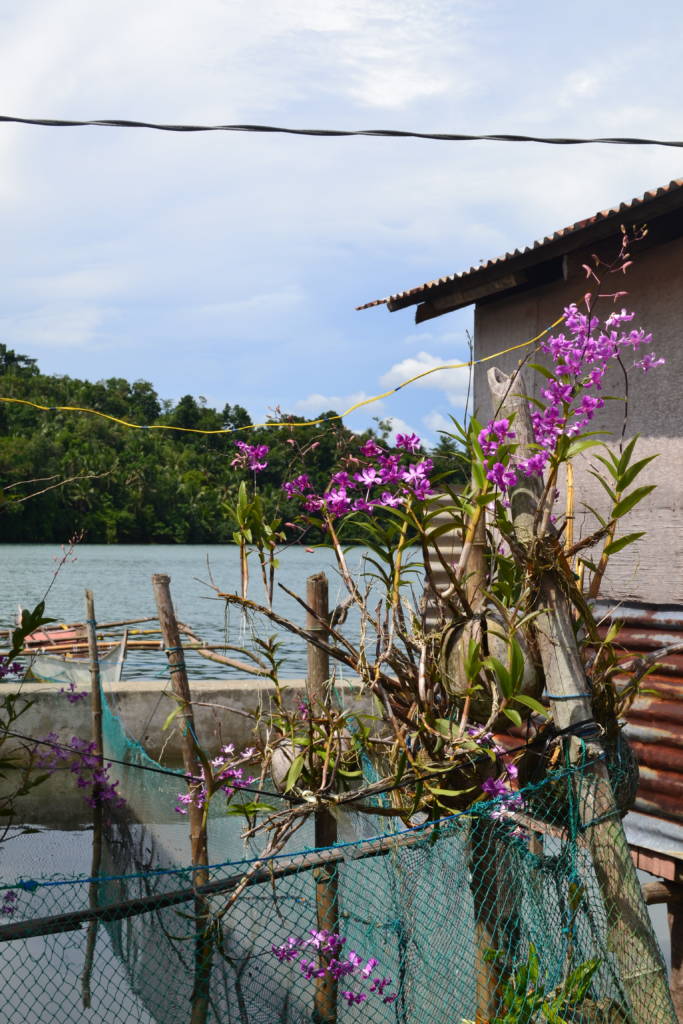On July 1st 2022, I traveled through steep roads and rocky paths leading to one of the far-flung communities I used to visit before, to connect and engage with them. I visited my fellow climate activists in Lucerdoni, a fishing community in Tarangnan. Most of our conversations revolve around inaccessibility of education, and how communities like theirs (by the bay, behind mountains, where the only way in are through scary, dark, and dangerous muddy mountain paths) are being left behind because they don’t really have access to the internet or even mobile service just to contact people outside the community.
We’ve talked about how different the quality of education is delivered to them and to those living near the city. Books are unavailable most of the time, little to no teachers are willing to volunteer to be placed in communities like theirs that are far from urban life (especially with how little we pay our teachers), and how information is not accessible as it is to those who live in more developed areas. Whenever I go visit, I get scared when I ride a single motor, because of how high the access road is built (especially when nearer to the community, a high slide, but for small transportation). From the national highway, you’ll go through this little community just by the hems of the mountain, and then you go up to steep and slippery damaged road, and then you go down through a made out rocky path, and down more to see this community.

Orchids outside a house in Lucerdoni. Photo credit: Vhon Michael
Despite the unfairness of everything to them, you’ll see kids willing to learn and learn more. There have only been a few who have graduated from college because of how the nearest high school is even over thirty minutes to an hour away, if they have fare. But most of them who were able to enroll have to wake up around three in the morning to start walking to my community. And another forty five minutes of ride and you’ll reach the city, where colleges are. Parents are supportive of their children’s education despite not being able to have access to one during their time.
But we should no longer be using the word despite ,or any words to make an inspiring story out of their misery and how unjust leaders are to them. Their suffering isn’t our tearjerker and action-sparking inspirations. They don’t deserve our pity. We should be doing better to bring them not only education, but to ensure that that education is of good quality. We should be giving them more funds, support, and build better projects so that information and resources could get to them easily. But most of all, we should hold those in power accountable for leaving them behind.
Whenever I get asked what climate justice looks like to me, I would always answer (1) communities like theirs, which are a lot not only in the Philippines but in the whole global south, are given their equally deserved right to access to a better, easy life that most of us have been taking for granted, and (2) education, and climate education especially, are prioritized not only by the perpetrators of the climate crisis as a form of reparation but also by the duly-elected officers and government officials who have promised them a just life.
Whenever we think of a better way to get people to be moved and inspired, we should not only be showing them the manifestations of the climate crisis as a horror, but to remind them that the climate crisis is also fruiting communities and resistance, and making existing communities stronger.
We should think of ways to personify the climate crisis and climate resistance, because only when people see and hear that there are actual people leading movements and resistance on the ground, and hear their stories, they would think not only of themselves, but of their families and loved ones who might, if not already, get affected by the climate crisis. But most importantly, they will also start to think about those who they don’t know, and treat their right to a livable planet just as important as those of their loved ones’. Actual people are living on the ground, on the frontlines, through the climate crisis. Actual people are dying. Actual people are fighting back.
If we are to tell their story to the people, and to the world, we should remember that their story is both heartbreaking and importantly inspiring: which should challenge us to fight not only for a better future for them and the children of the world, but a just present to those who are already being buried alive by the climate crisis. Because climate and social injustices are happening now.
I hope that when you think of me and tell me how inspiring I am and my voice is, and that you want to highlight how pivotal my story is, please remember that they are being left behind in the background and shadows and I hope that the disproportionate attention that frontline and grassroots voices like me get remind you that they have always been there for me and for us to strengthen not only our voices, but my spirit and will to ensure a better life for them and for everyone. I hope that when you hear my voice, you do not only hear their voices echoing in mine. I hope you hear them as loud and as clear as you hear me. Let their voices shake you.
Vhon Michael is a climate activist from the Philippines, writer and director of Zero Hour Asia. You can follow him on Instagram and Twitter.